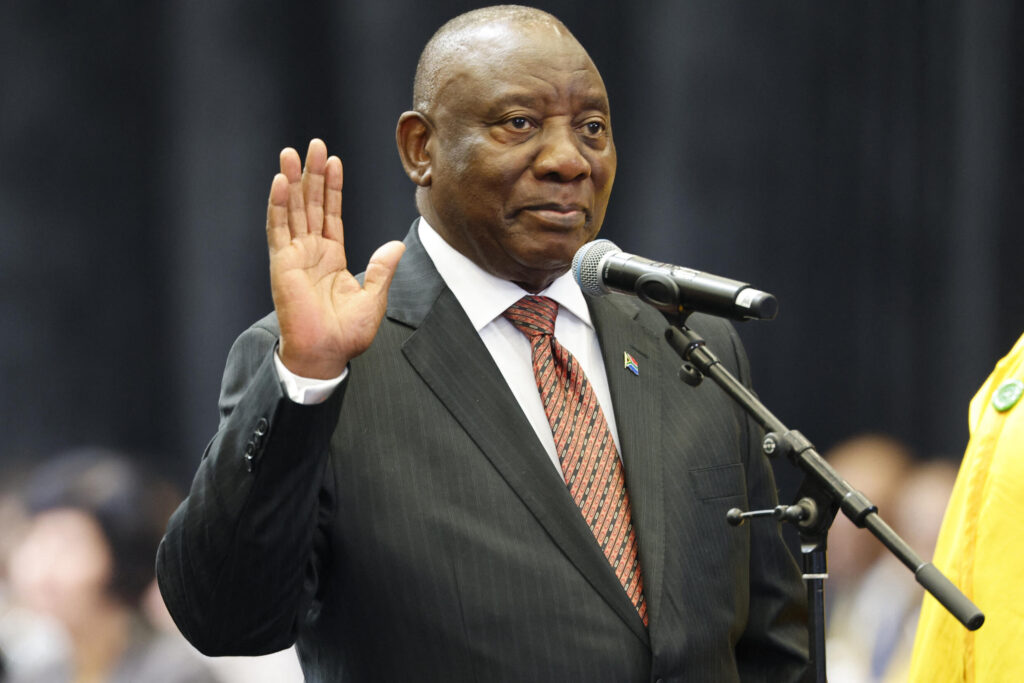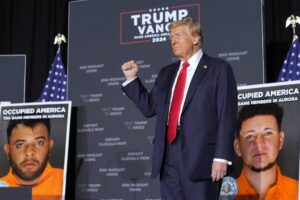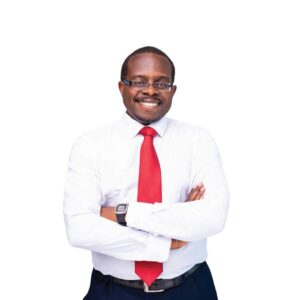
Ramaphosa Secures Second Term
South African President Cyril Ramaphosa secured a second term on Friday. His re-election followed a historic coalition agreement. The African National Congress (ANC) formed this unprecedented coalition government.
Election Results and Parliamentary Vote
Lawmakers in Cape Town voted overwhelmingly in favor of Ramaphosa. He garnered 283 votes in a secret ballot. The general election on May 29 yielded no outright winner. “I am humbled and honoured that you, as members of the National Assembly, have decided to elect me to be the President of the Republic of South Africa,” Ramaphosa stated in his acceptance speech.
PHOTO: Cyril Ramaphosa
Historic Shift in South African Politics
Last month’s election ended three decades of ANC dominance. The ANC, historically dominant, secured only 40 percent of the vote. This marked the first time the party lost its absolute majority in parliament. The ANC then formed a coalition to establish a government of national unity. “This is a historic juncture in the life of our country, which requires that we must work and act together,” Ramaphosa emphasized.
Coalition Composition
ANC Secretary General Fikile Mbalula announced the coalition’s composition. The coalition includes the centre-right Democratic Alliance (DA), the Zulu nationalist Inkatha Freedom Party (IFP), and other smaller groups. Ramaphosa’s main challenger, Julius Malema of the Economic Freedom Fighters (EFF), received 44 votes.
Swearing-In and Cabinet Formation
Ramaphosa will be sworn in next week in Pretoria. He will then announce his new cabinet. China, South Africa’s BRICS ally, welcomed Ramaphosa’s re-election. President Xi Jinping sent a congratulatory message.
Parliamentary Proceedings
Chief Justice Raymond Zondo opened the parliament’s first sitting. MPs took the oath in batches before voting for the speaker and deputy speaker. The ANC’s Thoko Didiza became the speaker. The DA’s Annelie Lotriet, representing South Africa’s white minority, became the deputy speaker. Both are women, signaling the power-sharing agreement’s initial success.
Controversies and Disputes
The EFF members attended the session in red overalls, symbolizing their protest. They refused to support the coalition, opposing alliances with right-wing or white-led parties. “This is not a government of national unity, this is a grand coalition between the ANC and white monopoly capital. History will judge you harshly,” Malema declared.
Jacob Zuma’s new party, uMkhonto weSizwe (MK), boycotted the sitting, disputing the election results. “The sitting of the national assembly today as far as we’re concerned is illegal and unconstitutional,” MK spokesman Nhlamulo Ndhlela stated.
Ramaphosa’s Challenges Ahead
Ramaphosa faces significant challenges in leading a diverse coalition government. The ANC’s pan-Africanist, progressive stance contrasts with the DA’s liberal, free-market agenda. Smaller coalition parties also bring a range of political views. “At the heart of this government of national unity statement is a shared respect and defence of our constitution and the rule of law,” DA leader John Steenhuisen commented.
Regional Implications
The coalition agreement extends to regional governments. In Gauteng and KwaZulu-Natal, the coalition secured narrow majorities. Despite Zuma’s MK winning most votes in KwaZulu-Natal, coalition members formed a majority with 41 out of 80 provincial councillors. “This is not the end of the process. And the road ahead will not be an easy one,” Steenhuisen noted, referring to the coalition’s complexities.
Ramaphosa’s Leadership and Economic Challenges
Ramaphosa became president in 2018 after Zuma’s resignation amid corruption allegations. His tenure has seen record power cuts, economic stagnation, and high crime rates. Unemployment stands at nearly 33 percent. Ramaphosa must now navigate conflicting views within the coalition to revive South Africa’s economy. “Rapid, inclusive and sustainable economic growth” is a top priority, as stated in a draft of the coalition deal. South Africa’s GDP grew by only 0.6 percent in 2023 and declined by 0.1 percent in early 2024.
Moving Forward
Ramaphosa’s re-election marks a new chapter in South Africa’s political landscape. The coalition government presents both opportunities and challenges. As Ramaphosa prepares to take office for another term, the nation’s eyes are on his ability to unite diverse political factions and drive economic recovery. The success of this coalition will significantly shape South Africa’s future trajectory.





